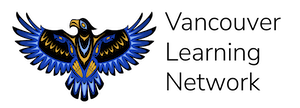Literary Studies 11
Literary Studies 11 Course Overview
Big Ideas
The exploration of text and story deepens our understanding | People understand text differently depending | Texts are socially, culturally, geographically, and historically constructed. | Language shapes ideas and influences others. | Questioning what we hear, read, and view contributes |
From: https://curriculum.gov.bc.ca/curriculum/english-language-arts/11/literary-studies
Introduction
Literary Studies 11 is a 4-credit course that counts towards your graduation portfolio in BC (British Columbia) high schools. It has been created to better prepare you to succeed with essay writing, critical analysis of literature, and comprehension of different genres and forms of writing. In this course you will be asked to define, explain, rationalize, critique, discuss, analyze, and summarize many readings from contemporary to long-established English texts. In addition, students will represent knowledge using multi modal methods such as video and visual presentations of information.
Where does this course fit?
- Prerequisite: Completion of a Grade 10 English Language Arts course
- Graduation Status: One of the Grade 11 English Language Arts Options required for graduation
- Follow-up courses include English Studies 12 or English First Peoples 12
- Note: Literary Studies 12 does not count towards the mandatory English 12 prerequisites for graduation in BC secondary schools, but only towards grade 12 elective credits
Course Materials
- It is strongly recommended you use a laptop or desktop computer running Windows, Word, and PowerPoint. Audio and recording capability for some of the assignments is mandatory.
Brief Outline
Unit | Description |
Startup Assignment |
|
Video Games and Visual Literacy
|
|
Short Stories |
|
Novel Study
|
|
Midterm Exam
|
|
Poetry |
|
The modern play |
|
Final Exam |
|
Assessment Percentage Breakdown
Assessment Type | Percentage of the Course |
Assignments | 49 |
Discussions | 1 |
Midterm exam | 15 |
Final exam | 35 |
You have up to a year to complete your course.

